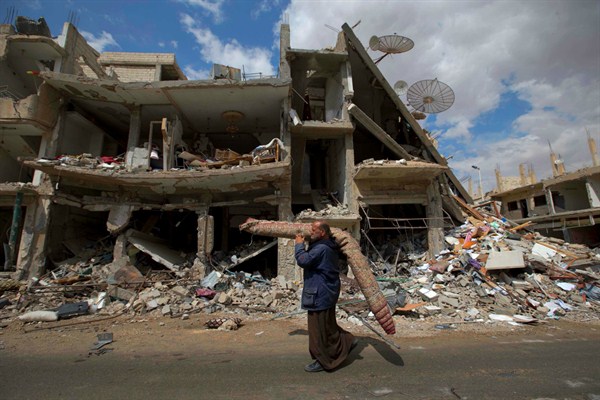As the Syrian people suffer the unspeakable horror and deprivation of war, it must seem to them that the violence will never end. Every week brings new brutality, whether the use of barrel bombs and chlorine gas by an evil regime or the up-close barbarity of the so-called Islamic State. It is hard to overstate how shocking this has been: In 2011, almost no one foresaw that protests demanding democratic reforms and the release of political prisoners by President Bashar al-Assad would devolve into a protracted humanitarian disaster that would devastate Syria, destabilize its region, and fuel the rise of the Islamic State.
Yet the war must end eventually. When it does, Syria will need a generation or more of international support to avoid a relapse into violence; to rebuild its shattered infrastructure and economy; to construct a sustainable political order; and to begin psychological healing. Barring a black swan event, like a major war between great powers or a North Korean nuclear strike, Syria will be the world’s most pressing security challenge for years to come. While it is impossible to know precisely how this will unfold, it is important to consider the wider effects of a Syria settlement now. In strategy, windows of opportunity open and close quickly, so time is of the essence.
The effects of a settlement will, of course, be felt most deeply in Syria itself and by its neighbors, but they will also affect other parts of the world experiencing internal conflict or recovering from it. For the United Nations and all the nations that support conflict resolution and post-conflict stabilization, Syria will become the “main event.” Fixing Syria will suck the air out of peacekeeping and stabilization efforts everywhere else. Money and attention that might have gone to Afghanistan, Somalia, Libya, Yemen, Mali, South Sudan or other nations in crisis will be redirected to Syria, not because Syrians are more important than other suffering people, but because Syria is geographically closer to many donor nations, because its conflict has been more horrific than many others, and because Syria is the breeding ground of the Islamic State.

